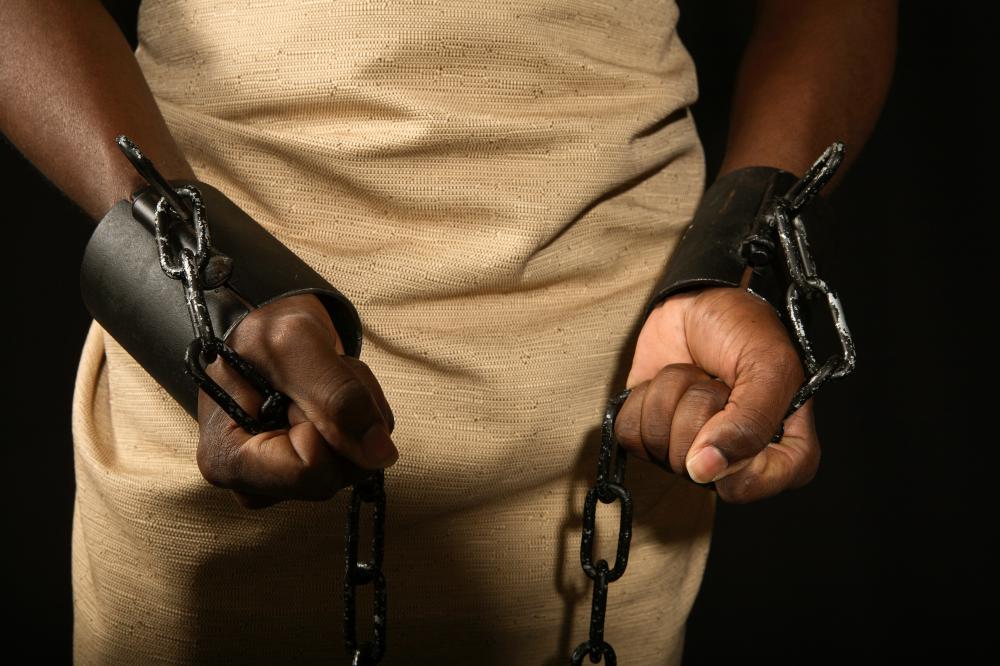At WiseGEEK, we're committed to delivering accurate, trustworthy information. Our expert-authored content is rigorously fact-checked and sourced from credible authorities. Discover how we uphold the highest standards in providing you with reliable knowledge.
What are Some Controversial U.S. Supreme Court Cases?
The Supreme Court of the United States, the highest court in the judicial branch of the government, tries important cases and rules on the constitutionality of laws. In the history of the American government, there have been several controversial U.S. Supreme Court cases that have had a lasting impact on politics, law, culture, and government.
One of the most controversial U.S. Supreme Court cases in American History is Marbury v. Madison (1803), which declared an act of Congress unconstitutional. William Marbury, intended by president John Adams to take the position of Justice of the Peace of the District of Columbia, did not receive this commission under the new Jefferson administration and sued the Secretary of State, James Madison, citing the Judiciary Act of 1789. The court found that while Marbury did have a right to claim his post, the Judiciary Act of 1789 was in direct opposition to the third article of the U.S. Constitution, which defines judicial jurisdiction. This case was and is controversial in American politics because the court decreed that the constitution takes precedence over legislative action.

Another of the important controversial U.S. Supreme Court cases is Dred Scott v. Sandford, decided by the court in 1857. Dred Scott, a freed slave, was moved into a pro-slavery state after the death of his master. He sued, claiming that because he had previously lived in a state where slavery was illegal, he should be free. The court found that Dred Scott did not have rights as a citizen, and also that blacks were not considered citizens. This was a hotly debated issue because during this time, the country was split by the issue of slavery and on the brink of civil war.

After the 13th amendment, which outlawed slavery in the United States, was passed, Congress passed the 14th amendment, which protected citizens equally under the law. However, many incidences of segregation still existed throughout the U.S. One example of this was Louisiana’s Separate Car Act which required railroad companies to provide “separate, but equal” accommodations for their passengers. In June of 1892, Homer Plessy, an African American man, traveled in a “whites only” train car. He was arrested and his case eventually became one of the most controversial U.S. Supreme Court cases in America. The court found him to be guilty in 1896, thus setting the precedent that if “separate, but equal” accommodations were provided, they were protected under the Constitution.

The 1954 Brown v. Board of Education decision is likely the most well-known American legal case and definitely one of the most controversial U.S. Supreme Court cases in history. Although Plessy v. Ferguson had found separate but equal facilities to be protected under constitutional law, in the Brown case, the Supreme Court found that states providing separate educational facilities to school children, based on race, violated the 14th amendment, thus integrating schools across the country and opening the door for the controversial civil rights movement.
The 14th amendment also played an important role in the Roe v. Wade case of 1973. Two attorneys, on behalf of a Texas woman (known as Roe), claimed a woman had a fundamental right to an abortion. The justices, in one of the most controversial U.S. Supreme Court cases, found in favor of the plaintiff, thereby overturning state law. They concluded that the 14th amendment to the Constitution provided a right to privacy under the due process clause, making abortion legal in the United States. This issue is still heavily debated in America today, which makes the court’s decision a landmark in American history.
AS FEATURED ON:
AS FEATURED ON:













Discussion Comments
GreenWeaver-I know that the Supreme Court news was greatest during the 2000 presidential election during Bush v Gore.
The case was decided in favor of President George W. Bush and ended the legal battle for the presidency that year.
This was one of the most controversial court cases because Gore received the majority of the popular vote but President George W. Bush received the winning vote tally from the Electoral College.
The Electoral College is what rules the presidency so in a 5-4 decision the ruling came in favor of President George W. Bush.
Lemon v Kurtzman was a case in which the Supreme Court agreed to hear a case about a Pennsylvania private school that was receiving a government supplement for teaching in a private school.
The court ruled that teachers that taught secular subjects in Catholic schools could not receive governmental supplements because it was a violation of the first amendment.
This ruling came down in 1971 and generally when the Supreme Court rules on something their decision is the ultimate precedent.
Post your comments